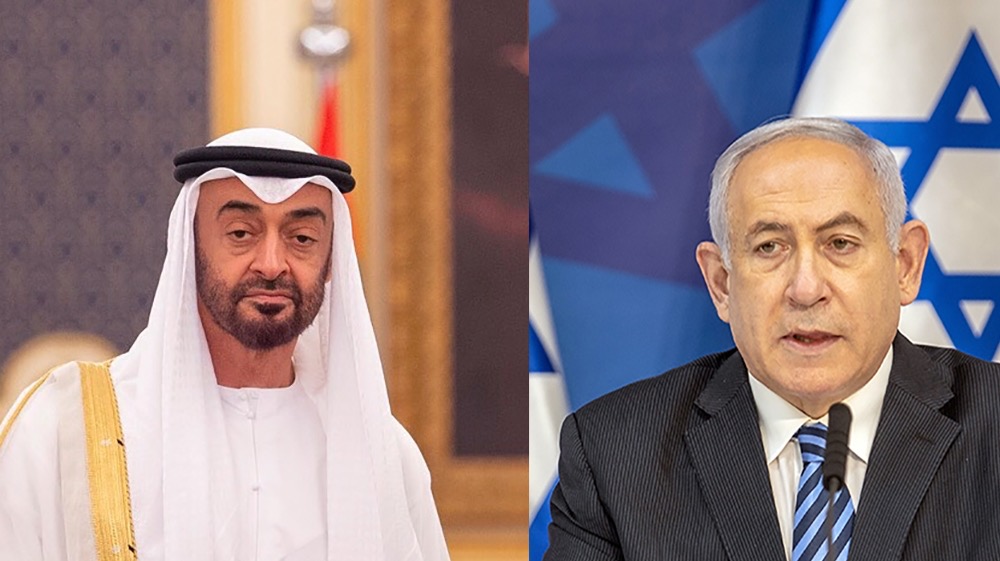
The announcement on 13 August 2020 that the United Arab Emirates and Israel had reached a peace agreement brought varied reactions: Egypt, Bahrain and Oman congratulated the parties while the Arab League and the Gulf Cooperation Council remained silent. In addition to the Palestinians, Turkey, Iran and Pakistan stridently condemned the deal.
While US President Donald Trump hailed the agreement as a singular achievement of his administration, the UAE and Israel de facto normalised commercial ties years ago. Strategically, their interests have been increasingly aligned as well. Like Israel, the UAE, and particularly Mohammed Bin Zayed, the crown prince of Abu Dhabi, sees Iran and Islamist forces as the two major threats to the region, and both parties shared an antipathy for the Arab Spring uprisings. During the Obama administration, their common concern about the Iran nuclear agreement and the US abandonment of staunch ally Hosni Mubarak in Egypt drove them even closer.
Trump, Netanyahu and Bin Zayed all have their own reasons for announcing an agreement at this juncture. Coming up on an election with flagging approval ratings, Trump hopes the diplomatic achievement will shore up his evangelical base and bring in campaign financing from pro-Israel donors. Netanyahu had painted himself into a corner, promising to annex Palestinian territories but was unable to deliver because of his shaky legal and political position. The peace deal offers him a convenient way out of the predicament. MBZ is concerned about the future of the war in Yemen and the siege of Qatar if the Democrats win the US presidential election. The peace deal gives him greater leverage with Democrats—who welcomed the announcement—while in effect bolstering Trump’s electoral chances.
The peace agreement also serves strategic objectives of all three parties. With it, the US has strengthened the pro-American regional alliance. Israel has broken the Arab consensus of land-for-peace while further isolating Palestinians and making no concessions, while the UAE gained a powerful regional ally that can offer significant security support and also intercede on its behalf in Washington.
Nevertheless, the agreement is fragile and could ultimately undermine the UAE’s strategic position. Immediately after the announcement of the agreement, Netanyahu said that he remains committed to annexation. This could create problems in the short term when the two parties discuss the details of the agreement and later on when Netanyahu again needs the electoral support of the Israeli far right. Moreover, only one of the other six Emirati rulers voiced support for the agreement, suggesting a less than firm Emirati consensus. Indeed, the UAE is now isolated on the Arab and Islamic stage, with the explicit support of only Egypt, Bahrain and Oman. Its future regional initiatives will be viewed with suspicion, as it will be seen to be acting on Israel’s behalf.
In light of this, there are three possible trajectories for the Israeli-Emirate peace agreement. First, it could have a domino effect, setting off a series of Israeli-Arab normalisations, which is what Trump and Netanyahu are hoping. Sudan, Oman, and Bahrain have been discussed as possible candidates, but their domestic conditions and strategic positions are so divergent from those of the UAE that this is unlikely. On the other hand, the agreement could collapse if Israel moves ahead with annexation and Iran, for example, takes measures to make the price of the agreement too high for the UAE, targeting its seaports or Emirati interests in Lebanon, Syria and Iraq. While the UAE has already attempted to allay Iran’s fears, announcing that the agreement did not target the country, Iran is unlikely to be mollified given the possibility of an Israeli military base adjacent to its cities and nuclear and oil facilities.
The most likely scenario is for the UAE to take advantage of the agreement in areas such as advanced technology, weapons acquisitions and intelligence cooperation, as well as agriculture and health—agreeing to set up joint surveillance posts and inviting Israeli investment in the Emirate economy—while avoiding military bases and joint defence agreements. Yet, even this sort of arrangement will be vulnerable to periodic crises, since, in contrast to Israel, the UAE will always prefer to avoid direct confrontation with Iran. Regionally, the agreement will only further inflame conflict insofar as it helps to bury the two-state solution and offers no alternative path for the peaceful resolution of the Israeli-Palestinian conflict.
* This is a summary of a policy brief originally written in Arabic, available here: https://studies.aljazeera.net/ar/article/4761.